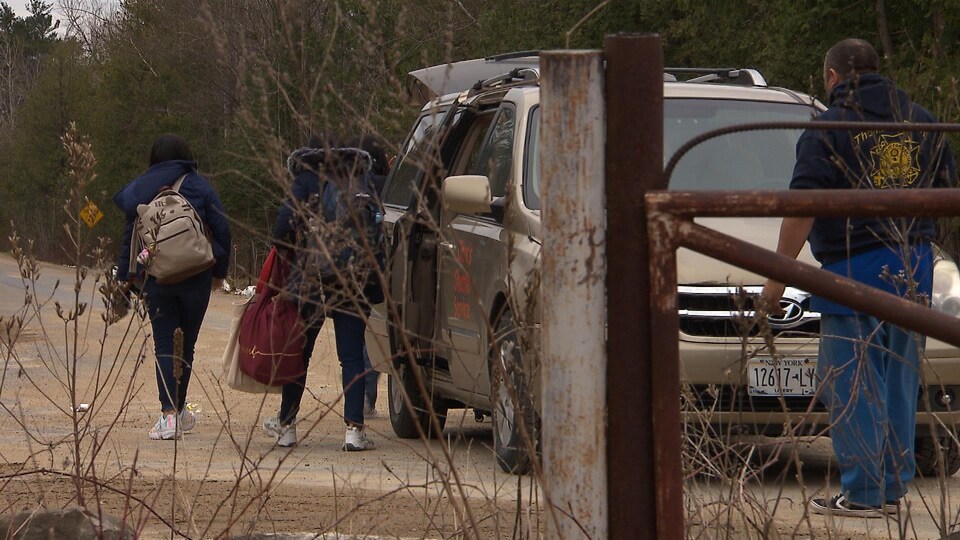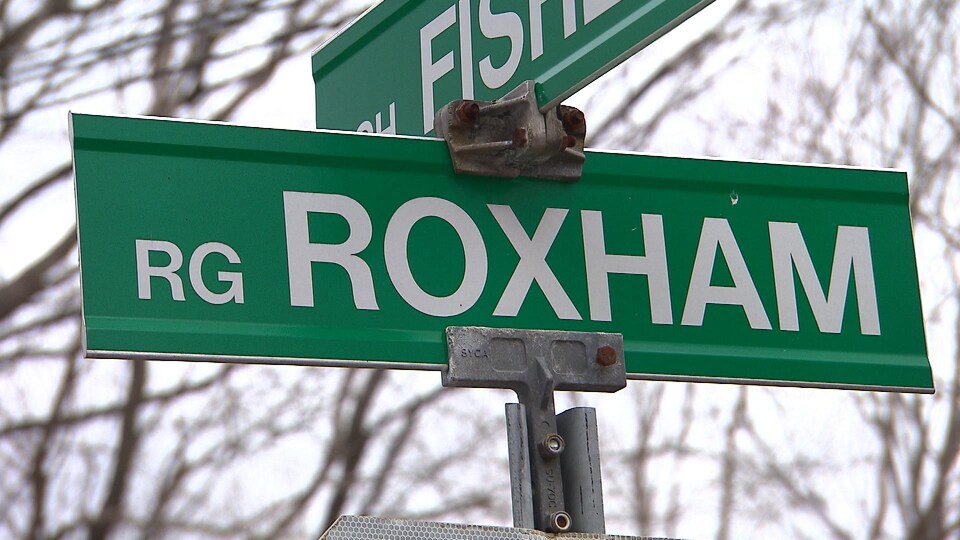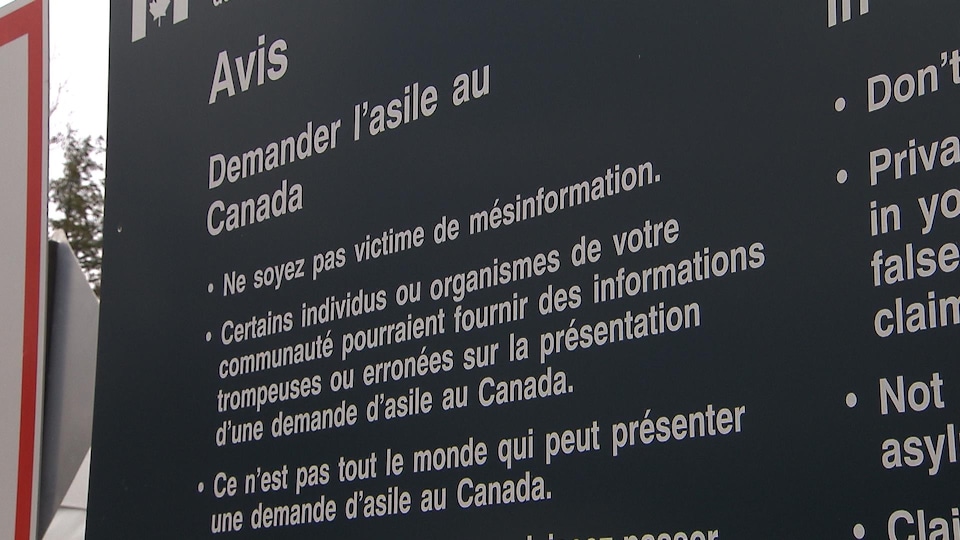According to Premier François Legault, Quebec does not have the resources to accommodate the hundreds of migrants who enter irregularly every day through Roxham Road, which he calls the federal government closing. But is blocking this passage a solution? And why do these migrants go this way?
Patrick Masbourian, host of the show All one morningspoke with Mireille Paquet, professor of political science and holder of the Concordia University Research Chair on New Immigration Policy.
Many of these migrants first go to New York or Plattsburgh, and the network will take them to Canada via Roxham Road. Why don’t they land right away in a Canadian city?
Especially since it’s harder to get into Canada [qu’aux États-Unis].
In Canada, there is no land border with Mexico, which is the gateway to Latin America. It is also more difficult to get to Canada by boat; few come to sea.
Moreover, of those arriving via Roxham Road, some have been in the United States for many years and, for many reasons, have not been able to apply for refugee status. We often underestimate what it means to emigrate. You have to manage the trauma you just experienced, make sure you have the documents, you will be able to tell your story to the decision makers; all this can take many years.
There are many movements the size of the planet and a small fraction of these people in need, sometimes in an emergency, are in our midst. Are they many?
We have the impression that Canada is facing large arrivals, numbers difficult to manage – this is the little speech we heard from Quebec on Wednesday.
In fact, Canada receives a very small number of asylum seekers and immigrants who arrive irregularly, compared to the United States or Europe.
Worldwide, we are living as a result of a more global hospitality crisis. These people don’t necessarily decide to go to Canada from the start. Faced with increasingly limited possibilities of gaining protection, they eventually try their luck in Canada.
Does this mean Quebec has nothing to complain about?
[Rires] I will not decide what Quebec should say or not. But, it needs to be put in perspective. What Quebec puts up are the issues raised by this new reality, and the way in which we respond to them.
Arrivals on Roxham Road will not stop. We face a global protection crisis and there will be new forms of human “uncertainty”. For example, due to climate change. So we should expect more to come to Canada.
One could say that the Quebec government is preparing for it, or that the Quebec state is preparing for it. As proof, this nearly $ 50 million deal that CIUSSS de l’Ouest-de-l’Île-de-Montréal has just concluded with a private real estate company that will house asylum seekers from Roxham Road, and this, over a period of 10 years.
Yes, absolutely, Quebec knows this and I think the federal government knows this very well.
But Quebec is trying to get a little more, to receive more resources for this temporary acceptance. And, like other provinces, Quebec continues to push Ottawa for faster processing times with the Immigration and Refugee Board of Canada.
The issue is not much reception capacity as a backlog in processing the applications of these asylum seekers. These people have been in an administrative and legal vacuum for years, and it’s been complicated for them.
Federal Public Safety Minister Marco Mendicino said Canada was negotiating with the United States to modernize the Safe Third Country Agreement, which was signed between the two countries in 2004. Why was it discussed? What problems do we want to solve?
We began negotiating the agreement following the attacks on September 11, 2001. Canada was in a delicate position because the Americans theorized that some of the terrorists had come to Canada and that they could potentially cross the border. The pressure is on Canada to modernize its border and immigration system […] from a safer perspective.
In addition, both Canada and the United States found that people, when they saw that their application for asylum in one country was rejected, went to a neighboring country to re-apply for refugee status. In this context, Ottawa and Washington drew inspiration from existing agreements within the European Union based on the concept of safe third countries.
What does such an agreement mean for migrants?
The countries that signed the agreement are countries recognized not only as safe, but also as having an equivalent system of determining refugee status.
So according to legal theory – and the word theory is important here – if you are an asylum seeker, you have as much opportunity to be treated equally and have your claim recognized for protection recognized, in any safe country. This is a theory, because we know that this is not the case in practice. But Canada and the United States were inspired by this principle to implement the agreement to prevent people from entering the United States to apply to Canada or vice versa.
With the modernization of this agreement, should asylum seekers be allowed to transfer their claim to Canada and therefore go through an official route, a border pole? What should we do to receive them as honorably as possible, to use the words of Quebec’s immigration minister, Jean Boulet?
We should think of this concept of a safe third country. Currently, people in the United States are not allowed to submit a paper or electronic application to go to Canada, to have their file reviewed. If we allow […] this can have the effect of limiting irregular entries. This is a first element and it will be a big step forward.
Another element to be explored is to allow applications at regular border poles, to prevent people coming through irregular routes such as Roxham Road from submitting their application.
But I have very little hope that it will work, because those two elements are at the heart of the principle of safe third countries and that is completely contrary to what the two governments are trying to do in this framework. I didn’t expect that, unfortunately.
Some languages have been edited for clarity and accuracy.
Source: Radio-Canada


